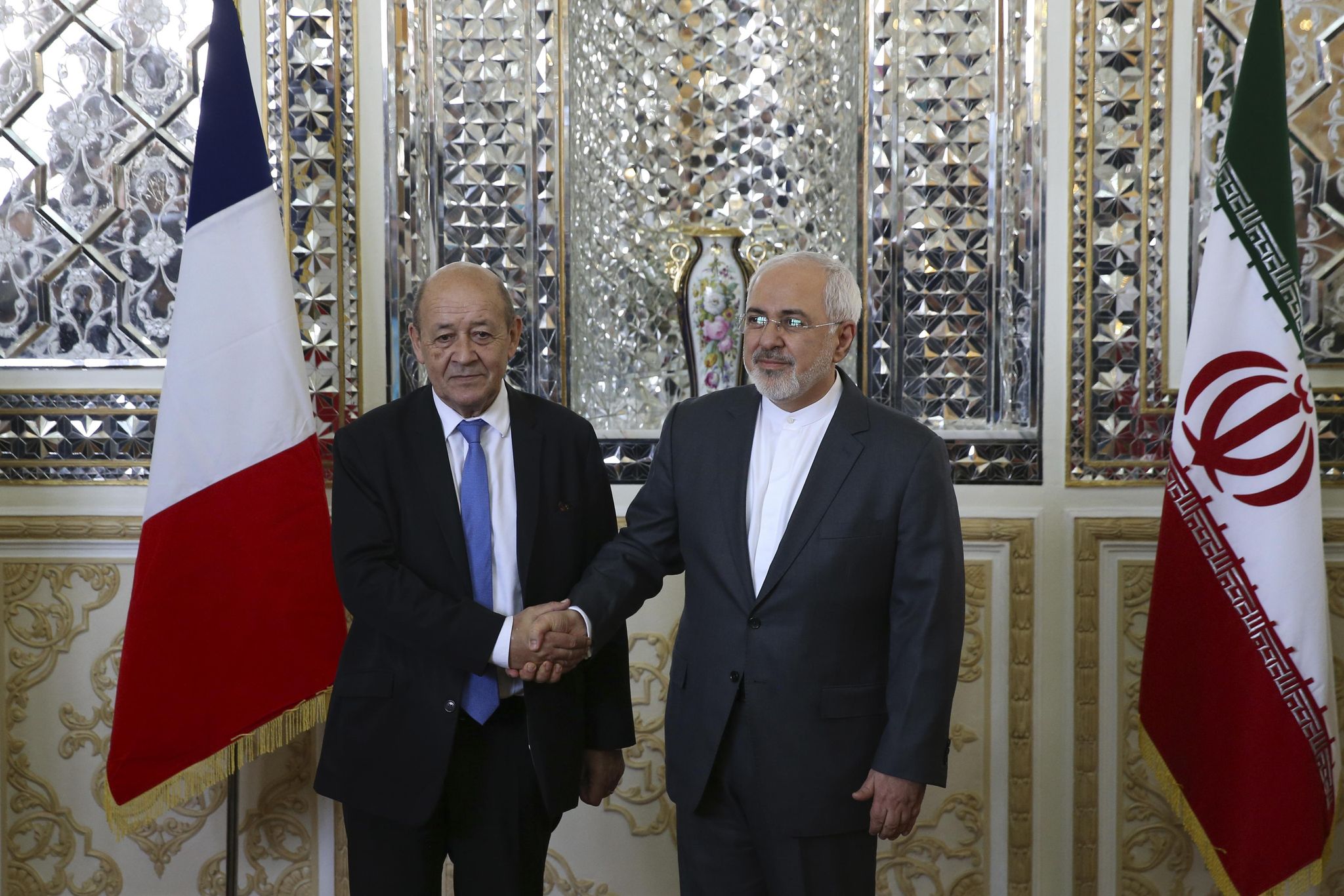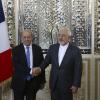
Iranian foreign minister says it’s up to Europe to convince President Trump not to exit the controversial accord.
Iranian Foreign Minister Mohammad Javad Zarif said Monday the European signatories of the Iranian nuclear deal should convince President Trump not to exit the controversial accord.
“It is either all or nothing,” Mr. Zarif tweeted. “European leaders should encourage Trump not just to stay in the nuclear deal, but more important to begin implementing his part of the bargain in good faith.”
Mr. Zarif’s comments during a visit to New York City this week followed vows from other Iranian officials to “shred” the nuclear agreement if Washington withdraws from it and to resume the Islamic republic’s nuclear program “at much greater speed.”
Formally known as the JCPOA, or Joint Comprehensive Plan of Action, the 2015 deal saw Iran agree with the U.S., France, Germany, Britain, Russia and China to stop its nuclear weapons development in exchange for the lifting of international economic sanctions.
But Washington opposition has grown as doubts — especially among conservatives and Mr. Trump — have multiplied over Iran’s trustworthiness and compliance.
Mr. Trump has made revisiting the deal one of his top foreign policy priorities and attempted to leverage its quarterly reauthorization process as a negotiating chip while lashing out at Tehran for its ballistic missile program and continued support of Syrian President Bashar al Assad.
Under U.S. law, the president must reauthorize the deal every 120-180 days by signing a waiver. For months, Mr. Trump has threatened to dump the deal unless it is tightened up. During the last reauthorization waiver extension in January, he said it was a “last chance” to change the accord before Washington withdraws.
European signatories now have a May 12 White House deadline to change the deal, or Mr. Trump will refuse to extend U.S. sanctions relief on Iran — effectively killing the contentious, landmark agreement.
On Sunday, French President Emmanuel Macron urged Mr. Trump to stick with it, warning that there is no “plan B” if the U.S. opts out.
“President Macron is correct in saying there is no “plan B” on JCPOA,” Mr. Zarif added on his Tweet Monday.
The Iranian foreign minister sought to bolster the message during an appearance Monday evening at the Council on Foreign Relations, an American think tank in New York City, during which he argued that the nuclear deal as inked in 2015 was fair because all sides made serious concessions.
“Nobody won when we were trying to up the ante against one another … in the nuclear talks,” Mr. Zarif said, adding that the deal worked because the various sides figured out that “everybody loses” in a successful negotiation.
But Mr. Zarif went on to argue that America under the Trump administration is now “in violation” of the deal even as Iran has been repeatedly credited with performing satisfactorily by the International Atomic Energy Agency (IAEA) — the U.N. nuclear watchdog tasked with overseeing the deal’s implementation.
The foreign minister claimed that Washington has failed to keep up its end of the deal by blocking licenses to international companies to invest in the Iranian economy. He suggested that the Trump administration is responsible for preventing the U.S. Treasury Department’s Office of Foreign Asset Control (OFAC) from issuing such licenses since coming to office last year.
“We have 11 reports of the IAEA saying that Iran performed, but since President trump came to office, not a single license has been issued, not a single OFAC license,” Mr. Zarif said. “So the U.S. is already in violation.”
Mr. Macron, meanwhile, is visiting Washington this week for three days of VIP events, including Mr. Trump’s first state dinner on Tuesday with first lady Melania Trump, Brigitte Macron and Mr. Macron.
The Iran issue will likely be discussed — with Paris having previously suggested tougher measures against Iran’s ballistic missile programs to “supplement” the nuclear deal.
Another deal ally, German Chancellor Angela Merkel, also visits the White House on April 27. While Mr. Trump and Mr. Macron have forged a close relationship, his bond with Mr. Merkel is said to be more distant.
European commentators have noted that despite that, both Mr. Macron and Ms. Merkel seek to assure Mr. Trump that Europe shares his concerns about Iranian aggression across the Middle East.
On a separate front Monday, Russian Foreign Minister Sergey Lavrov said China and Russia would block any attempts to “sabotage” the deal.
“There are attempts to interfere with the international order upon which the United Nations depends,” Mr. Lavrov said, after talks with Chinese officials before a meeting of the Shanghai Cooperation Organisation, a regional security bloc spearheaded by Moscow and Beijing.
Praising the JCPOA as “one of the biggest achievements in international diplomacy in recent times,” Mr. Lavrov added that “revising this document is unacceptable.”
Guy Taylor contributed to this report.






